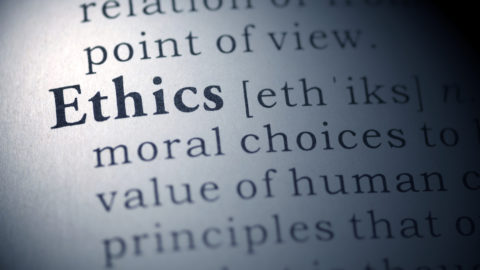As AI technology continues to advance, providing greater efficiency and the ability to process extensive amounts of data, legal professionals are increasingly tempted to utilize Generative AI as a convenient shortcut for drafting legal motions and pleadings. However, lawyers must…
Ethical Duties in Handling Appeals: 2024 Edition
In pursuing an appeal on behalf of a client, a California lawyer must meet the requirements of the California Rules of Professional Conduct (“CRPC”) and the State Bar Act. The following summarizes some of those requirements and recent developments. Fundamentally,…
How to Ethically Prepare a Witness
I offer this short primer on the ethics of preparing a witness as a teaser trailer to this year’s annual Legal Ethics Lessons Learned from Fictional Attorneys CLE, to be presented by the Ethics Committee of The Bar Association of…
Does Using a Social Media Ad Campaign to Market Legal Services Violate Ethics Rules?
Several social media sites, such as Meta and Twitter, have built-in ad managers that allow attorneys to pay to advertise their legal services using the social media platform. However, attorneys should proceed cautiously. Before using one of these social…
Lawyers – You Can’t Discriminate
The California Rules of Professional Conduct (“CRPC”) included a new rule in 2018 that prohibits attorneys from participating in discrimination, harassment and retaliation in representing a client. It also prohibits discrimination in the law firm’s operations. Specifically, CRPC 8.4.1 provides:…
Use it or Lose It: Take Advantage of Your Annual Insurance Risk Management Budget
California lawyers should have professional liability insurance to avoid paying damages and expenses out of pocket if a claim is asserted against them. Those who do not have insurance must disclose that fact to each client in writing at the…
Practical Ethics Tips for Remote Depositions
Before you conduct or defend your next remote deposition, be mindful of your ethical duties of Competence (Rule 1.1), Confidentiality (Rule 1.6), and Supervision (Rule 5.1), under the California Rules of Professional Conduct. Here are a few practical tips: 1.…
The Ethics of Third-Party Litigation Funding
Photo: Michael J. Fox in The Good Wife. Credit: CBS. In the “Raw Deal” episode of The Good Wife, Louis Canning (played by fan favorite Michael J. Fox) shared privileged information with a litigation funding source about what his corporate client…
Legal Ethics and Attorney Mistakes
Missing a deadline for filing a pleading or discovery response, or omitting an important argument from a brief, can have grave consequences for the client. While some mistakes are more serious than others, the lawyer must still adhere to the…
Can You Confront Opposing Counsel if Opposing Counsel Is Violating the Rules of Professional Conduct?
Believing that opposing counsel violated the California Rules of Professional Conduct (CRPC or Rule) can present a clear ethical dilemma for attorneys. However, Rule 3.10, also known as the extortion prohibition rule, provides limitations on the attorney’s actions. Rule 3.10…
Legal Ethics and COVID-19
As we navigate the challenges of representing clients during the COVID-19 pandemic, we need to remain mindful of our obligations under the California Rules of Professional Conduct (CRPC). A recent Legal Ethics Corner (To Be Diligent, BASF Bulletin, May 2020)…
To Be Diligent
The California Rules of Professional Conduct, Rule 1.3 imposes a separate duty on attorneys to be diligent in their representation of clients. Specifically, Rule 1.3 provides: “(a) A lawyer shall not intentionally, repeatedly, recklessly or with gross negligence fail…






